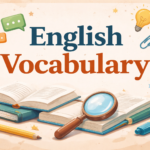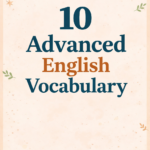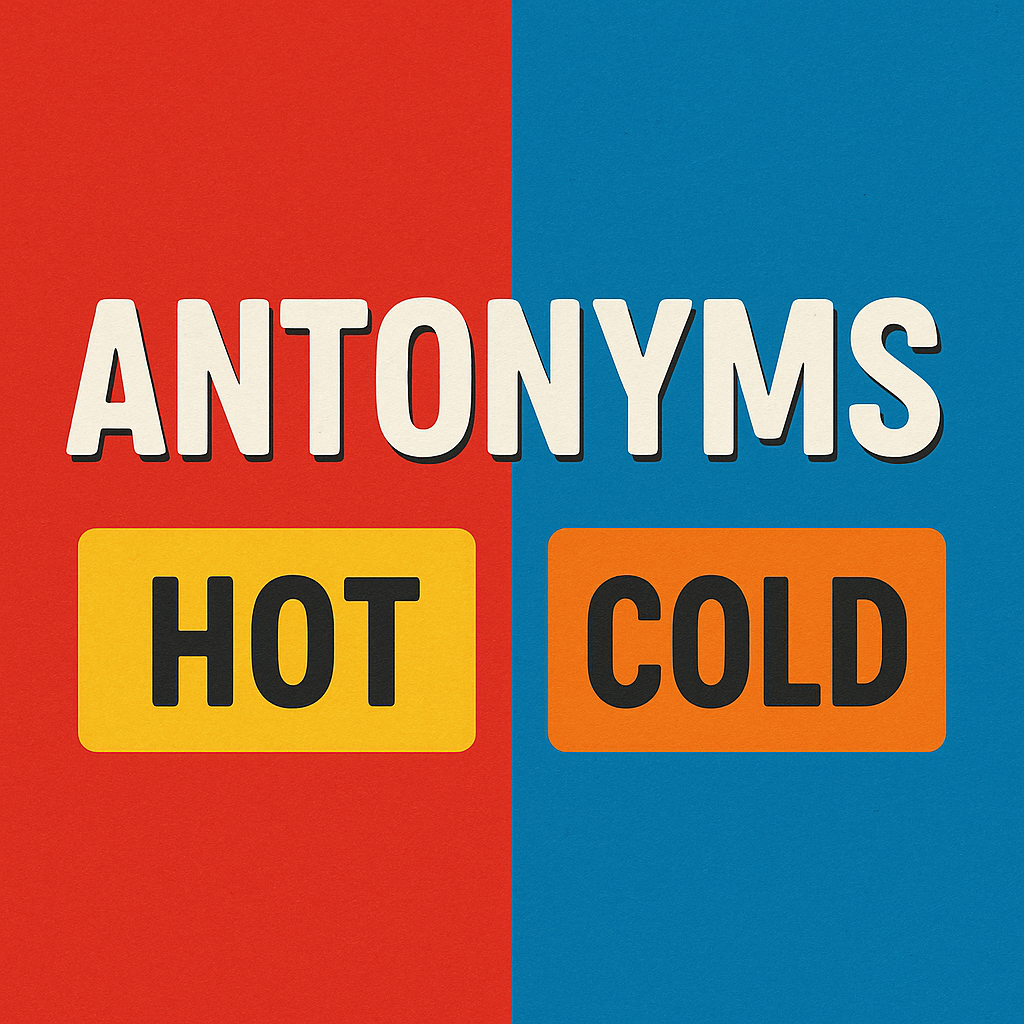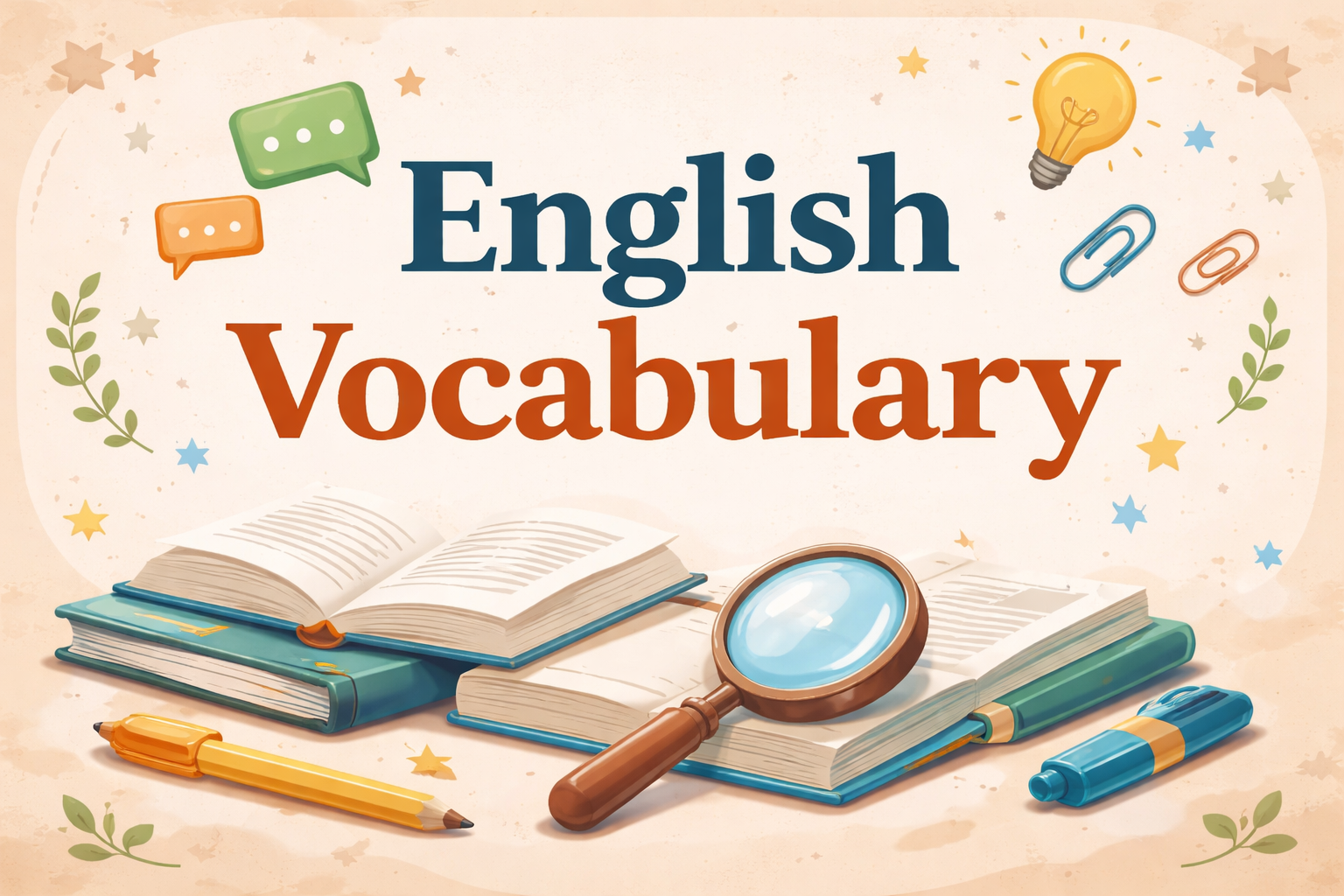An antonym is a word with the opposite meaning of another word. For example, “big” (meaning large in size) has the antonym “small” (meaning little in size). Antonyms are used to express contrast or opposition in meaning, such as “hot” (high temperature) versus “cold” (low temperature). They help clarify differences in concepts, like “fast” (quick) versus “slow” (sluggish), or “happy” (joyful) versus “sad” (sorrowful). Understanding antonyms enhances communication by providing precise ways to describe opposites, as seen in pairs like “up” (higher position) and “down” (lower position).
- Big vs. Small
- Meaning: Big refers to something large in size; small refers to something little in size.
- Example: The elephant is big, but the mouse is small.
- Hot vs. Cold
- Meaning: Hot describes high temperature; cold describes low temperature.
- Example: The soup is hot, but the ice cream is cold.
- Fast vs. Slow
- Meaning: Fast indicates quick movement; slow indicates sluggish movement.
- Example: The cheetah runs fast, while the turtle moves slow.
- Happy vs. Sad
- Meaning: Happy means feeling joy; sad means feeling sorrow.
- Example: She was happy at the party, but sad when it ended.
- Up vs. Down
- Meaning: Up refers to a higher position; down refers to a lower position.
- Example: The balloon floats up, but the stone falls down.
- On vs. Off
- Meaning: On indicates something is active or functioning; off indicates it is inactive.
- Example: The light is on, but the fan is off.
- Old vs. Young
- Meaning: Old refers to advanced age; young refers to early age.
- Example: The grandfather is old, but the baby is young.
- Hard vs. Soft
- Meaning: Hard describes something firm; soft describes something pliable.
- Example: The rock is hard, but the pillow is soft.
- Open vs. Closed
- Meaning: Open means accessible or uncovered; closed means sealed or inaccessible.
- Example: The shop is open, but the gate is closed.
- Light vs. Dark
- Meaning: Light refers to brightness; dark refers to the absence of light.
- Example: The room is light during the day, but dark at night.
antonyms are words with opposite meanings, such as big/small or hot/cold, that help highlight contrasts and enrich communication. The provided list of 10 antonym pairs, including their meanings and example sentences, demonstrates how these words function in context to clarify differences, like fast/slow or happy/sad. Understanding and using antonyms enhances clarity and precision in language, making them essential for effective expression. If you need further details or additional examples, feel free to ask!










